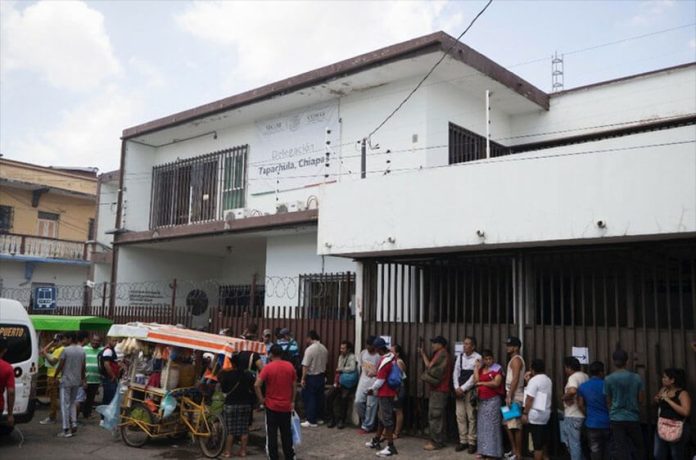Migration to and through Mexico will continue to increase in 2022, according to the United Nations Refugee Agency (UNHCR).
Josep Herreros, a Mexico City-based UNHCR official, told the newspaper La Razón that social conflict, violence, poverty and pandemic-related factors will continue to spur migration from Central American and South American countries next year.
Migrants from Honduras, El Salvador, Guatemala and Haiti have arrived in Mexico in large numbers this year, but people from farther afield, even African countries, have also entered the country to seek asylum here, or more commonly, to travel north to the United States.
Herreros predicted that the number of migrants from Venezuela will increase next year due to the ongoing difficult situation in the once-prosperous South American country.
“The situation in Central and South American will continue to impact Mexico. Due to the growing violence, we will certainly see more exoduses next year,” he said.
The UNCHR protection unit chief noted that migrants are also flowing into Mexico via its northern border due to the United States’ resumption of the so-called Remain in Mexico policy, which forces migrants to wait here while their asylum claims in the U.S. are resolved, expulsions to prevent the spread of the coronavirus (Title 42 expulsion) and deportations of people who have been arrested.
Adding to the pressure on migrant services at the northern border are asylum seekers who arrive there after traveling through Mexico from the southern border.
Migration to and through Mexico has surged this year, and while many migrants are intent on reaching the United States, an increasing number are seeking to stay here, at least in the short term. Asylum applications rose by almost 200% to over 123,000 this year, placing enormous pressure on immigration authorities and the Mexican refugee agency COMAR, which admitted in November that it was close to collapsing under the strain.
“What increased asylum requests this year were the constant arrivals from Central America and an unusual movement of the Haitian population from Brazil and Chile,” Herreros said.
He warned that an increase in migration next year will push COMAR, the National Immigration Institute, migrant shelters and organizations that assist migrants to the limit.
Herreros said that processing asylum applications in a timely manner is essential in order to improve migrants’ experience in Mexico.
Many have been forced to wait for months or even longer to regularize their status, which effectively traps them in the cities where they filed their claims – Tapachula is the prime example – and contributes to discontent and distrust in authorities.
Instead of being trapped in the south, migrants could fill industrial sector jobs in states such as Coahuila, Jalisco, Nuevo León, Puebla, San Luis Potosí and Guanajuato, Herreros said, estimating that at least 100,000 such positions were available.
With reports from La Razón
